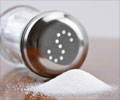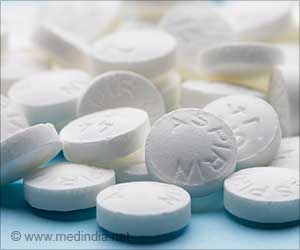Foods high in salt elevate the likelihood of stroke, heart failure, and various other cardiovascular complications.

ESC Congress 2023 Amsterdam, Onsite & Online, 25 - 28 August
Go to source). Atrial fibrillation is an irregular and often very rapid heart rhythm (arrhythmia) that can lead to blood clots in the heart.
Reduced Salt Intake Linked to Lower Atrial Fibrillation Risk
People with AF are five times more likely to have a stroke. “Our study indicates that lower frequency of adding salt to foods was associated with lower risk of AF,” said lead author Yoon Jung Park of Kyungpook National University Hospital.For the study, presented at the European Society of Cardiology conference held in Amsterdam last week, the team examined data from 395,682 British people, aged 40 to 70, who were followed for 11 years. The findings also suggest that switching diet from always adding salt to “usually” adding it reduced the risk of AF by 12 percent. “It’s well known that eating too much salt can lead to health problems, including high blood pressure. As well as increasing your risk of having a heart attack or stroke, high blood pressure can also cause damage to your heart and this in turn can cause atrial fibrillation,” said Prof James Leiper of the British Heart Foundation. Sodium is an essential nutrient, but eating too much salt makes it the top risk factor for diet and nutrition-related deaths. The main source of sodium is table salt (sodium chloride), but it is also contained in other condiments such as sodium glutamate.‘Adopting a salt-free diet can potentially lower your cardiovascular disease risk, such as heart attacks and strokes, by nearly 20 percent. #lesssalt #heartattack #stroke #heartfriendlyfoods’





Earlier in March, the World Health Organization (WHO) had called on countries to make ‘massive efforts’ to reduce people’s salt intake that can prevent the risk of heart problems, stroke and cancers. In a first-of-its-kind global report on sodium intake reduction, the global health body noted that the world is off-track to achieve its global target of reducing sodium intake by 30 percent by 2025.The report shows that only 5 percent countries are protected by mandatory and comprehensive sodium reduction policies, while 73 percent, including India, lack full range of implementation of such policies. Implementing highly cost-effective sodium reduction policies could save an estimated seven million lives globally by 2030, the WHO said (2✔ ✔Trusted SourceWHO global report on sodium intake reduction
Go to source).
References:
- ESC Congress 2023 Amsterdam, Onsite & Online, 25 - 28 August - (https://www.escardio.org/Congresses-Events/ESC-Congress/About-the-congress)
- WHO global report on sodium intake reduction - (http://www.indiaenvironmentportal.org.in/content/474653/who-global-report-on-sodium-intake-reduction)
Source-IANS















